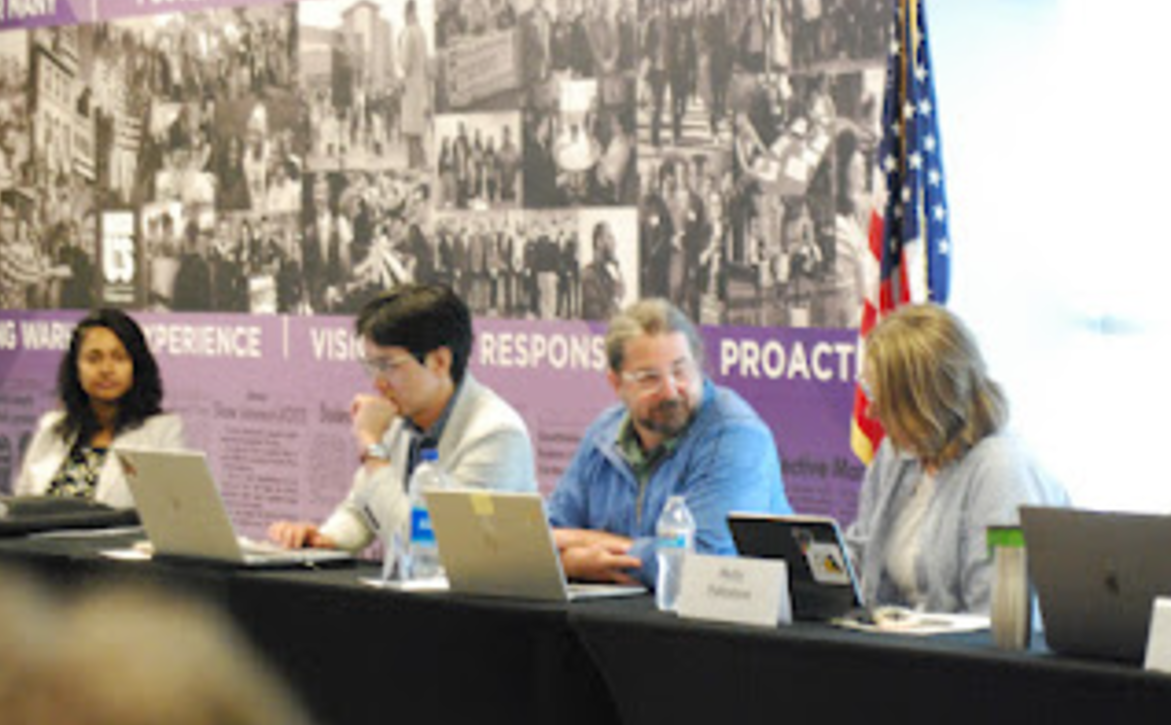There are several governing bodies at UW-Whitewater, the most well-known being Whitewater Student Government. But what many students may fail to realize is that the university’s staff have their own legislature and executive body.
The Faculty Senate consists of UW-W staff members who are elected to serve in their respective constituencies. Likewise, the Faculty Senate Executive Committee (FSEC) consists of a smaller group of elected individuals.
Associate Professor Jonah Ralston, who chairs the FSEC, explained that the committee’s role is to set the agenda for Faculty Senate meetings and act on certain matters. Ralston is also responsible for sending weekly updates to faculty.
Ralston emphasized that the Faculty Senate has a key role at UW-W.
“We’re a liaison between the administration and the faculty,” Ralston said. “It allows us to bring concerns to the administration.”
On Oct. 29, the FSEC hosted an All-Faculty Town Hall. Unlike an official meeting, this was an informal gathering that allowed staff members to share feedback and concerns.
Some new points were brought to the FSEC’s attention, such as purchasing delays and a lack of marketing for certain programs. However, most of the discussion revolved around consistent issues that have plagued faculty for the last several years.
According to Ralston, low compensation and budget cuts have been a significant problem for not only UW-W, but also the entirety of the Universities of Wisconsin.
“Our peers around us are outcompeting us because they’re funding their education systems,” Ralston said. “If you look at the history on this, you’ll see it’s just been a series of cuts after cuts after cuts and funding requests denied.”
Ralston shared that staff members have had dramatic losses in compensation and market value. Additionally, large gaps in pay have caused other institutions to lose faculty members who feel they are undervalued.
Ralston mentioned that although UW-W has not had a huge loss of faculty members, he anticipates that it will become an issue in the future. This, in turn, will harm the student experience.
“We are at the bottom in terms of how much funding per student we get from the UW System,” Ralston said. “We really need to get not only more funding, but more equitable and fair funding for Whitewater.”
Associate Professor Molly Patterson is the FSEC’s secretary. In this role, Patterson is responsible for keeping a record of what goes on during meetings.
Patterson echoed Ralston’s concerns, adding that UW-W has lots of support in place for students. However, Patterson explained that funding is an issue that can affect students.
“The main concerns voiced were just making sure that our students were well served and that we were getting budget allocations that were appropriate,” Patterson said.
Patterson shared that data is collected from other institutions to see if faculty are being paid appropriately with the cost of living factored in. Patterson shared that staff are not paid as much compared to those from other institutions.
“I think people are concerned that that [this] might actually hurt the quality of education for students because we might not be able to retain talented faculty,” Patterson said.
Ralston shared The Faculty Senate has been working hard to ensure that change is made for faculty and students alike. That tuition increases are possible if change occurs, but it is not the preference.
Ralston believes that funding should come from both the state and the Universities of Wisconsin, with an emphasis on keeping tuition low for students. The Faculty Senate is pushing for a combination of all three factors to allow UW-W to flourish as an institution.
The bulk of the Faculty Senate’s work this academic year has been focused on compensation, funding and transparency. The body aims to ensure student success while allowing staff members to feel rewarded for the differences they make with their students.
With the Faculty Senate and the FSEC collaborating closely with administrators and the Universities of Wisconsin, the faculty’s viewpoints and experiences are being heard.
Ralston looks ahead to the future, which includes the best outcome for all involved.
“We can recruit the best talent, retain the best talent and then students get the best experience,” Ralston said. “Everybody wins in that scenario and the administration wins too.”

